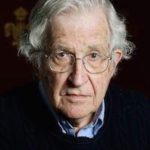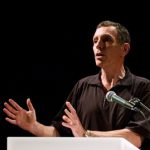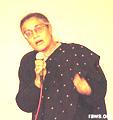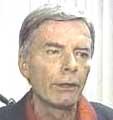PANDEMICS II 3-Pack
3 CDs
Includes:
The Politics of the Pandemic
It should be abundantly clear that part of the president’s m.o., almost an article of faith, is to never accept responsibility when things go wrong. It’s always someone else’s fault: Pelosi, the media, the WHO, Obama, China, or immigrants. And if you criticize the leader expect retaliation. Just ask Rick Bright, a top government scientist who was removed from his job he says because he opposed the president’s touting of hydroxychloroquine, an anti-malarial drug, as a coronavirus treatment. He has filed a whistleblower complaint. The president has called him “a disgruntled employee.” These are Rick Bright’s words of warning, "Our window of opportunity is closing. If we fail to develop a nationally coordinated response, based in science, I fear the pandemic will get far worse and be prolonged, causing unprecedented illness and fatalities. Without clear planning 2020 will be the darkest winter in modern history." Interview by David Barsamian.
The Pandemic & the Economy: A Radical View
The standard narrative about the current crisis is that the coronavirus pathogen triggered an economic collapse. But what is crucially ignored is that neoliberal capitalism was already weak and stressed out, a pre-existing condition, if you will. That systemic weakness went into freefall when the pandemic hit. In its long history, capitalism has produced many booms and busts but this period, particularly since Reagan, has produced spectacular inequalities in wealth and income. Tens of millions, if they even have a job, live paycheck-to-paycheck. We're all in this together? Right? That's what the signs say. But not the rich. They have their country estates, yachts and island retreats to shelter in place. The big question is: Once the crisis abates are we going to go back to business as usual, or will there be fundamental change?
Surviving the Future
What will tomorrow bring in the age of COVID-19? There is so much uncertainty. Arundhati Roy sees an opportunity. She writes, “Whatever it is, coronavirus has made the mighty kneel and brought the world to a halt. And in the midst of this terrible despair, it offers us a chance to rethink the doomsday machine we have built for ourselves. Nothing could be worse than a return to normality. Historically, pandemics have forced humans to break with the past and imagine their world anew. This one is no different. It is a portal, a gateway between one world and the next. We can choose to walk through it, dragging the carcasses of our prejudice and hatred, our avarice, our data banks and dead ideas, our dead rivers and smoky skies behind us. Or we can walk through lightly, with little luggage, ready to imagine another world. And ready to fight for it.”
Speakers

Noam Chomsky
Noam Chomsky, by any measure, has led a most extraordinary life. In one index he is ranked as the eighth most cited person in history, right up there with Aristotle, Shakespeare, Marx, Plato and Freud. His contributions to modern linguistics are legendary. In addition to his pioneering work in that field, he has been a leading voice for peace and social justice for many decades. Chris Hedges says he is “America’s greatest intellectual” who “makes the powerful, as well as their liberal apologists, deeply uncomfortable.” The New Statesman calls him “the conscience of the American people.” He is Professor Emeritus in the Department of Linguistics and Philosophy at MIT and Laureate Professor of Linguistics and Haury Chair in the Program in Environment and Social Justice at the University of Arizona. At 95, he continues to inform and inspire people all over the world. He is the author of scores of books, his latest are Consequences of Capitalism, Chronicles of Dissent and Notes on Resistance.

David McNally
David McNally is the Cullen Distinguished Professor of History and Business at the University of Houston and director of the Center for the Study of Capitalism. He is the author of Global Slump, Monsters of the Market and Blood and Money.

Naomi Klein
Naomi Klein is a professor in the Department of Geography at the University of British Columbia, the founding co-director of UBC’s Centre for Climate Justice, and Honorary Professor of Media and Climate at Rutgers University. Her writing has appeared in leading publications around the world, and she is a columnist for The Guardian. The New York Times says, “She is that nearly extinct breed of activist: one who never stops questioning orthodoxies and interrogating her own beliefs.” She is the award-winning author of such bestsellers as This Changes Everything, The Shock Doctrine, No Logo, No Is Not Enough, and On Fire. Her latest book is the highly acclaimed Doppelganger.

Arundhati Roy
Arundhati Roy is a world-renowned award-winning writer and global justice activist. Tariq Ali says of her she “is both loathed and feared by the Indian elite. Loathed because she speaks her mind. Feared because her voice reaches the world outside India and damages the myths perpetrated by New Delhi.” Among her many books are My Seditious Heart and Azadi. Her latest book is The Architecture of Modern Empire.





Reviews
There are no reviews yet.